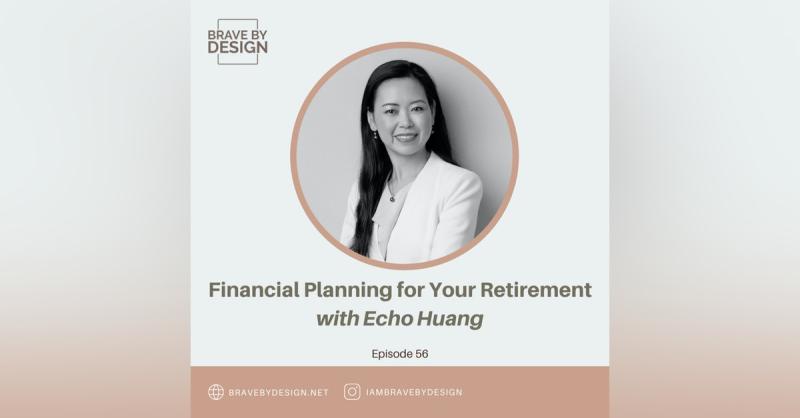Do You Know Your Financial Independence Day?
Independence Day is one of America’s favorite summer holidays. What is one of your favorite traditions on Independence Day: fireworks, hotdogs, parades? In this blog, I want to talk about another kind of Independence Day, your Financial Independence Day.
If money and time were not an issue, what kind of activities would you be doing over the next twelve months? The day when work becomes optional—when you can choose to stop working and start doing those activities that you enjoy while maintaining your current standard of living—is the day you’ve reached your financial independence day. This day is the end result of a process of determining your retirement income goals, the actions, and decisions necessary to achieve those goals. Retirement planning is, in essence, preparation for life after paid work ends, not just financially, but in terms of lifestyle choices, such as how to spend time in retirement, where to live, when to completely quit working.
A Plan for Every Stage of Life
People often deny themselves their dreams because they don’t understand the resources needed. This is why it’s important that I get their list of dreams during a discovery meeting in order to explore options and tell them what’s realistic. If a goal is unrealistic based on current net worth, income, and expenses, I can make suggestions for changes to get them to a better place. I can run some scenarios to show if they are spending too much now to retire in their target year, and I can offer recommendations. Financial independence isn’t necessarily just about retirement; it could involve pursuit of a new career.
Let’s take a look at Planning TIPS for three specific stages of life.
Planning for Financial Independence in Early Adulthood (Ages 21-35)
When you’re in early adulthood, ages twenty-one to thirty-five, you have time on your side to put plans in place that will help you later. This makes your guidelines to financial independence a little different than those designed for older adults. Student loans and young children are factors in the planning during this stage.
Start saving and invest early, even with a small amount of money. Compound interest will work extremely well for you over time.
The initial planning and ongoing monitoring can help you focus on what you can control, such as performing well at work and saving regularly.
Planning TIPS (Age 21-35)
Start saving and investing early, even with a small amount of money.
- Open a 401(k) plan and/or a Roth IRA.
- Form healthy money habits by creating a monthly spending plan.
- Create and maintain good credit scores.
Planning for Financial Independence in Early Midlife (Ages 36-50)
Most people who come to a financial advisor tend to think they can’t become financially independent, at least not when they want. They don’t know what to do now to make it possible later.
People in this age bracket are hoping to fund the private schools and college educations of their children and also explore the possibility of early retirement. They may have done some investing, but are not confident in their financial decisions and are fearful of making the wrong move, so many don’t make any move.
Planning TIPS (Ages 36-50)
- Continue to fund your 401(k) plan. Consider maximizing contributions as your income increases.
- Consider choosing an HDHP (High Deductible Health Plan) instead of a traditional health insurance plan to save on monthly premiums. Maximize contributions to a health savings account (HSA) because they are tax deductible and distributions are tax free if used to pay for qualified medical expenses.
- If you have limited income and didn’t start saving for retirement until your mid-thirties, consider increasing retirement savings before saving for college because many institutions will lend money to your children for higher education, but no one will lend you money to retire. Otherwise, consider funding a college savings account (a 529 plan) because distributions are tax free if used to pay for qualified education expenses.
- Make sure you have proper life insurance and disability insurance so that your loved ones don’t have to withdraw early from retirement accounts should something happen to you.
- If your income is too high to contribute directly to a Roth IRA, consider funding a traditional IRA (maximum of $6,000 in 2019; $7,000 for age fifty and over). IRA contributions may not be tax deductible due to income limitations if you participate in a 401(k) plan, but traditional IRA contributions are worth making because the earnings are tax deferred and you can convert the balance later to a Roth IRA.
Planning for Financial Independence in Late Midlife (Ages 51-65)
For those approaching retirement age, it’s important to include Social Security planning in the overall retirement plan. Retirement plans, pensions, marital status and age of each spouse, along with the health of each are factors to be evaluated during this stage of life, along with decision of at what age to take social security benefits.
Planning TIPS (Ages 51-65)
- As you are approaching retirement, your investment risk tolerance should be lower in order to avoid losing too much right before you retire or in the early years of retirement when you don’t have the luxury of time to wait for a market upswing.
- These may be your high-income years, so maximize the catch-up contributions to your 401(k) plan and your IRA.
- Consider buying long-term-care insurance to reduce your long-term-care expenses when you are still healthy and you are on track with your retirement savings.
- You cannot enroll in Medicare until age sixty-five, so if you retire before sixty-five, your financial plan needs to include some estimation of additional health insurance costs for the years that you have retired without an insurance plan provided by an employer.
- Include Social Security planning in your overall retirement plan. If you have other resources and you are relatively healthy, it’s best not to take Social Security benefits before your full retirement age because the benefits will be greatly reduced.
Today we have looked at planning for your Financial Independence Day - the day when work becomes optional—when you can choose to stop working and start doing those activities that you enjoy while maintaining your current standard of living. I have included Planning TIPS for each age bracket, and hopefully, got you thinking about financial decisions you should be considering at your age.
Next time, I want to talk about unique challenges women face concerning their Financial Independence Day. Did you know most women work 12 fewer years than men?
So, what stage are you in and have you already accomplished some of the Planning TIPS? I’d enjoy hearing about it below.













